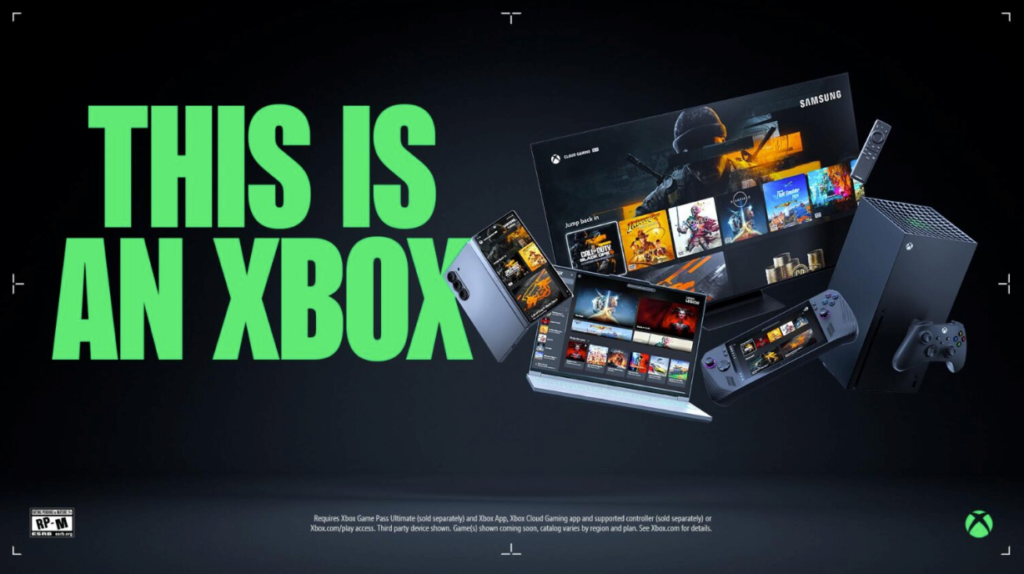
Xbox's New Campaign Highlights More Than Just the Console
Xbox’s New Campaign Highlights More Than Just the Console
Microsoft is launching a new ad campaign called “This Is An Xbox” ahead of the holiday season, likely to drive sign-ups to Game Pass. The campaign emphasizes the fact that you don’t need to buy an Xbox to play Xbox games, as they are available on various devices. This reflects Microsoft’s strategy to expand its market share in the gaming industry, where it currently sits in third place behind PlayStation and Nintendo.
Beyond the Console
Microsoft is going all out with this campaign, featuring visuals in major cities worldwide, including San Francisco, Atlanta, Chicago, Sydney, Melbourne, Brisbane, London, New York, and Berlin. They even commissioned a live-action trailer with the song “The Choice Is Yours” by Black Sheep, a fitting choice for their message.
The campaign also involves branding takeovers with companies like Samsung, Crocs, Porsche, and The Happy Egg. Ads showcase products like a pair of Crocs with the message “This is a pair of Crocs,” followed by an Xbox with “This is an Xbox.” Later this year, a giant billboard for “This Is An Xbox” will be unveiled in New York City’s Times Square.
Expanding the Xbox Ecosystem
Microsoft has been promoting this idea of expanding the Xbox ecosystem for years. In 2020, Microsoft Gaming CEO Phil Spencer stated that Xbox’s goal is to increase the number of people playing on Xbox, but not necessarily on a dedicated console. “It means somebody who is logging in and playing a part of our ecosystem, whether first-party or third-party,” he explained, adding that this could be on Android phones, Switch, PCs, or other platforms.
The Power of Game Pass
The focus on expanding the Xbox ecosystem beyond consoles highlights the importance of Xbox Game Pass. Game consoles generally don’t generate significant revenue, but games and services are much more profitable. Microsoft is aggressively pushing Xbox Game Pass to create a steady and recurring revenue stream through subscriptions.
Capitalism and Layoffs
Microsoft’s recent layoffs, affecting 2,500 employees, further underline the company’s focus on profitability. CEO Phil Spencer defended the cuts, stating they were “necessary due to







